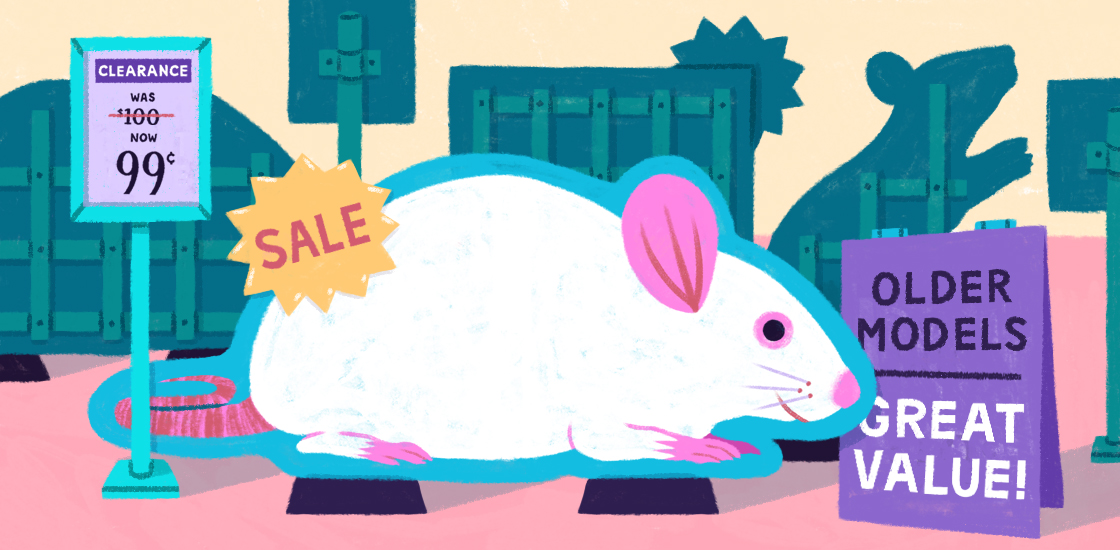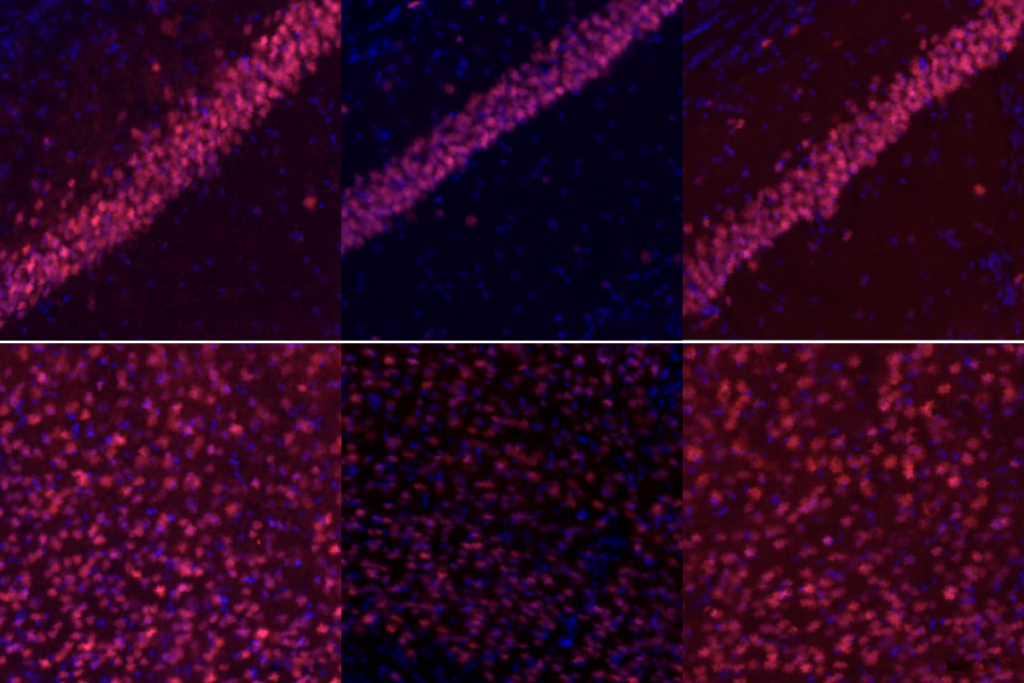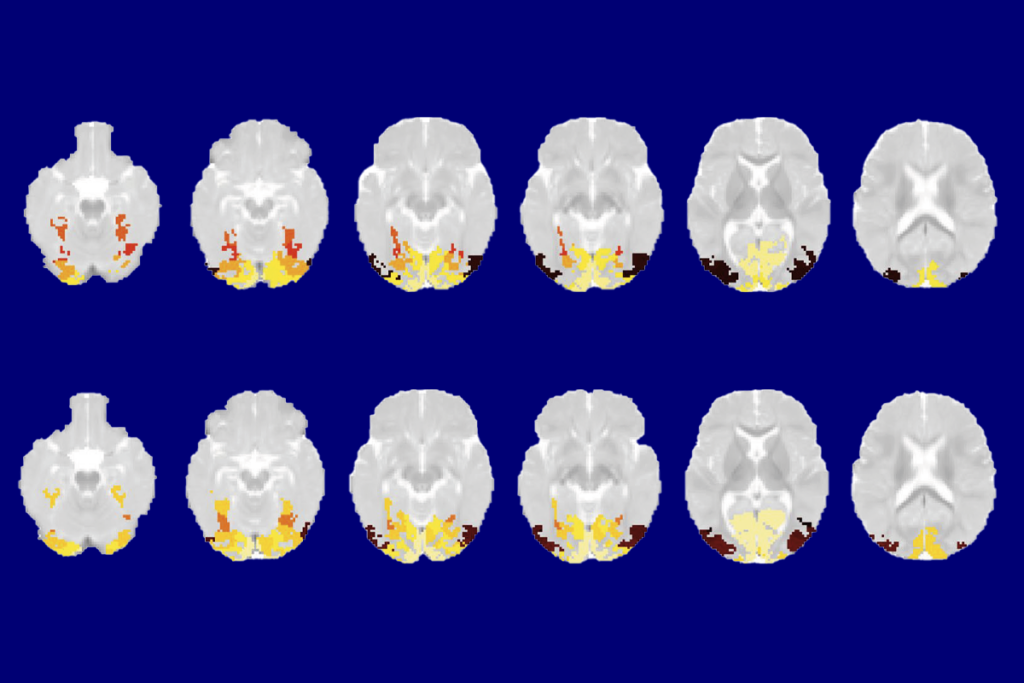BTBR mice
Recent articles
Artificial intelligence system categorizes interactions between mice
New software can automatically identify and quantify mouse social behavior from videos, saving researchers time.
Artificial intelligence system categorizes interactions between mice
New software can automatically identify and quantify mouse social behavior from videos, saving researchers time.
New mouse brain atlas traces connections in fine detail
A new wiring diagram of the mouse brain could help autism researchers better study how brain connections vary in mice with different genetic backgrounds.
New mouse brain atlas traces connections in fine detail
A new wiring diagram of the mouse brain could help autism researchers better study how brain connections vary in mice with different genetic backgrounds.
‘Outmoded’ mouse models of autism may still yield new advances
Many researchers question the value of three early mouse models of autism, but the models have their staunch supporters.

‘Outmoded’ mouse models of autism may still yield new advances
Many researchers question the value of three early mouse models of autism, but the models have their staunch supporters.
Mouse studies support second chance for fragile X drug
Two new studies give a boost to arbaclofen, which failed to meet expectations in clinical trials for autism and fragile X syndrome.

Mouse studies support second chance for fragile X drug
Two new studies give a boost to arbaclofen, which failed to meet expectations in clinical trials for autism and fragile X syndrome.
Optimizing behavioral assays for mouse models of autism
As the number of autism rodent models climbs, it is a good time for the field to step back and consider the best practices for assessing autism-like symptoms in rodents, says Jacqueline Crawley.

Optimizing behavioral assays for mouse models of autism
As the number of autism rodent models climbs, it is a good time for the field to step back and consider the best practices for assessing autism-like symptoms in rodents, says Jacqueline Crawley.
Signaling imbalance skews sensory responses in autism mice
Mice modeling autism have trouble integrating different kinds of sensory information such as sight, sound and touch. A study published 31 July in Neuron reports that an imbalance between signals that calm neurons and those that excite them leads to these sensory problems.

Signaling imbalance skews sensory responses in autism mice
Mice modeling autism have trouble integrating different kinds of sensory information such as sight, sound and touch. A study published 31 July in Neuron reports that an imbalance between signals that calm neurons and those that excite them leads to these sensory problems.
Low-dose sedative eases autism symptoms in mice
The equivalent of one-tenth of a single pill of the anxiety drug clonazepam alleviates many autism-like behaviors in a mouse model of the disorder, according to a study published 19 March in Neuron.

Low-dose sedative eases autism symptoms in mice
The equivalent of one-tenth of a single pill of the anxiety drug clonazepam alleviates many autism-like behaviors in a mouse model of the disorder, according to a study published 19 March in Neuron.
Automated tool records behavior of autism mouse models
A new tracking system automatically logs and scores mouse behavior as well as a human observer does, according to a paper published 31 December 2013 in Journal of Neuroscience Methods.

Automated tool records behavior of autism mouse models
A new tracking system automatically logs and scores mouse behavior as well as a human observer does, according to a paper published 31 December 2013 in Journal of Neuroscience Methods.
Cognition and behavior: Drug ups sociability in autism mice
Rapamycin, a drug given to suppress immune rejection after transplants, improves social behavior in mice with features of autism, reports a study published in the January issue of Brain Research Bulletin.

Cognition and behavior: Drug ups sociability in autism mice
Rapamycin, a drug given to suppress immune rejection after transplants, improves social behavior in mice with features of autism, reports a study published in the January issue of Brain Research Bulletin.
Compendium of mouse brains highlights autism’s diversity
By mapping the brains of not 1 but 27 mouse models of autism, researchers are making sense of the widely divergent structural changes seen in autism brains, they reported Wednesday at the 2013 Society for Neuroscience annual meeting in San Diego.

Compendium of mouse brains highlights autism’s diversity
By mapping the brains of not 1 but 27 mouse models of autism, researchers are making sense of the widely divergent structural changes seen in autism brains, they reported Wednesday at the 2013 Society for Neuroscience annual meeting in San Diego.
Explore more from The Transmitter
Marcelle Lapicque: A forgotten pioneer of neuroscience
Lapicque was the first Black female neuroscientist in Europe, new research suggests.
Marcelle Lapicque: A forgotten pioneer of neuroscience
Lapicque was the first Black female neuroscientist in Europe, new research suggests.
In-vivo base editing in a mouse model of autism, and more
Here is a roundup of autism-related news and research spotted around the web for the week of 23 February.

In-vivo base editing in a mouse model of autism, and more
Here is a roundup of autism-related news and research spotted around the web for the week of 23 February.
Infant visual system categorizes common objects by 2 months of age
Brain activity patterns in the ventral visual cortex appear to distinguish images across 12 categories, including birds and trees, longitudinal functional MRI scans suggest.

Infant visual system categorizes common objects by 2 months of age
Brain activity patterns in the ventral visual cortex appear to distinguish images across 12 categories, including birds and trees, longitudinal functional MRI scans suggest.